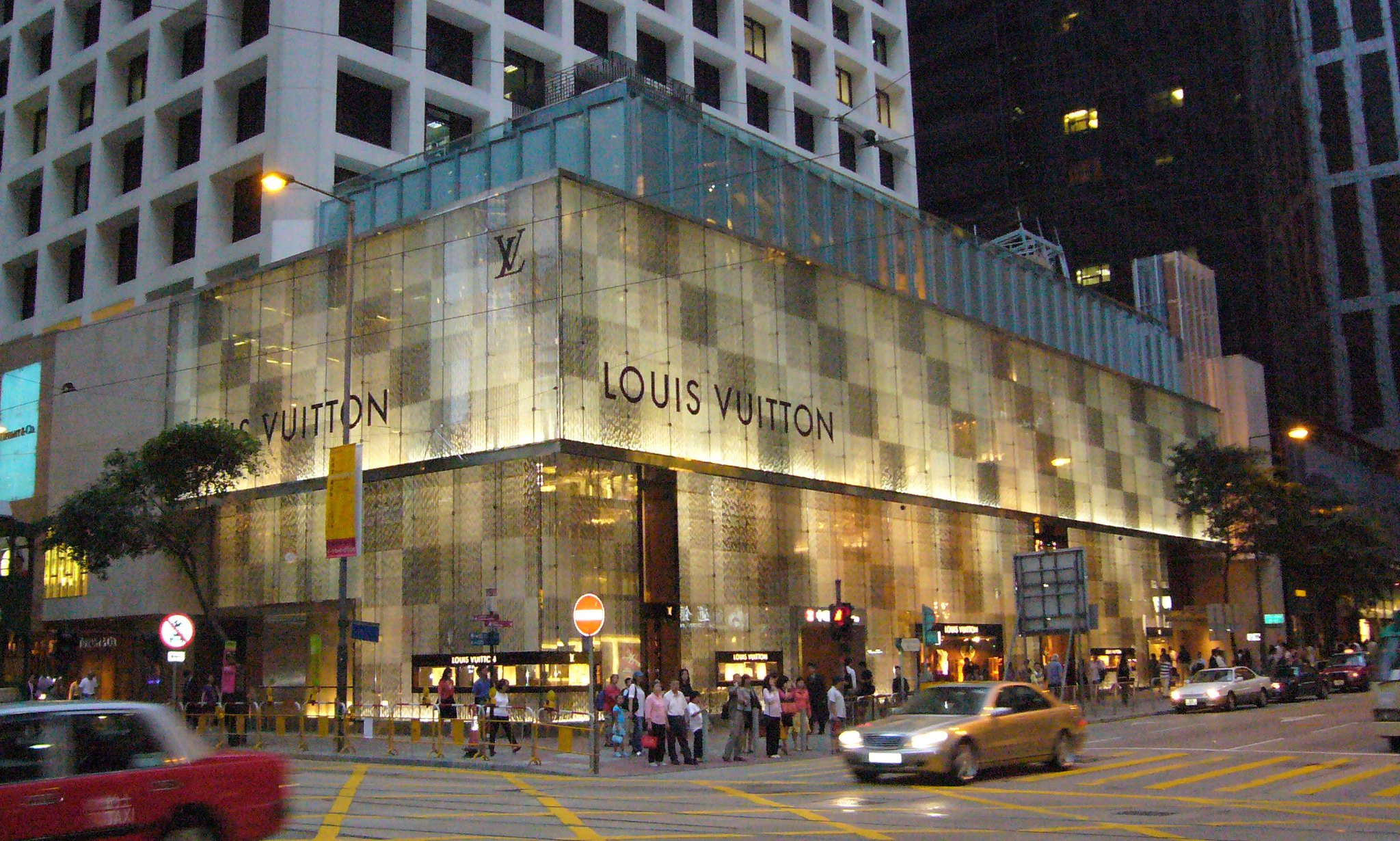Louis Vuitton is the most recent in a string of luxury fashion brands to close down branches in Hong Kong. The store in question was located in Times Square Mall in the previously bustling shopping district of Causeway Bay and was forced to close, according to the brand, due to an inability to renegotiate rent prices with the landlord after the shop saw profits fall.
Similarly, Prada has announced it will close its Russell Street store when its lease expires later in 2020, and other luxury brands Hugo Boss, Ralph Lauren, Gucci and L’Occitane are all on record revealing the damage the protests have caused their stores.
As Hong Kong faces its first recession in a decade it is clear that stores catering to people’s discretionary income will be amongst those worst affected. According to Forbes, clothing and footwear sales dropped by 31.8% in November alone, a huge shift in the market for a well-known luxury shopping destination; Bernstein analysts estimate the territory accounts for a huge 5-10% of the $285 billion annual global sales of luxury goods.
Perhaps unexpectedly, it is not usually direct action on these stores that forces them to close down; in fact, protestors tend to vandalise properties as a result of their pro-mainland owners rather than because of the economic or social status of the shops and those who buy from them. Protestors attacked the Hong Kong Adidas store on December 23, for example, after the brand announced that Liu Yifei, a public supporter of Hong Kong police, would be its womenswear ambassador.
For luxury brands, though, profits are decreasing rapidly because fewer tourists are using Hong Kong as a shopping destination. Forbes estimates tourists account for up to 70% of luxury purchases there, and whilst the largest declines came from mainland China, dropping by 58%, numbers of longer-haul visitors from the U.S., U.K., France and Australia also fell by 36.1% in November. Losing such a significant proportion of their target market, it is hardly surprising that high-end brands should see their profits suffer.
For other, more affordable commodities and services, the protestors have developed an online colour code to indicate for different restaurants, shops and service providers: black, red, and blue support trashing, spray-painting, or simply boycotting a location, while a yellow marker encourages protestors to actively support the shop with business.
Activists can use their economic power to send a political message and empower the communities around them. Services boycotted regularly include banks, metros and large conglomerates like Starbucks: big corporations that pro-democracy Hong Kongers feel are representative of the Chinese elite.
Indeed, economic inequality is growing in Hong Kong, with the Gini coefficient at 0.539 (where zero indicates income equality on a scale from zero to one), the highest it has been in 45 years. Hong Kong’s malls, centres of commercialism and luxury, have also become targets for protest, with protestors staging a peaceful rally in the suburban New Town Plaza luxury shopping mall in July. The professor of architecture at the University of Hong Kong, Cecilia Chu, describes how “the mall quickly evolved into a major site of protest because it now comes to represent something more specific: the corporate power of developer Sun Hung Kai, which is seen by protesters as a ‘colluder’ with the government and police.”
The inequality in Hong Kong is most apparent in its housing prices, and the inability of some elite corporate developers, such as Sun Hung Kai, to decrease their rent prices affects both ends of the spectrum, from luxury brands like Louis Vuitton to local activists seeking better housing.
Andrew Sheng points out that the struggle in Hong Kong is often figured as a ‘fight between two civilisations’, as Hong Kong legislator Fernando Cheung stated. Pro-democracy activism is synonymous with improved welfare and equality, but in failing to recognise the distinction between the two, we can forget the frustrations the Hong Kongers have at their economic and social circumstances. While the closure of luxury fashion stores in Hong Kong is not a direct result of protestor action, it represents the anger held against the wealthier, elite supporters of China.



